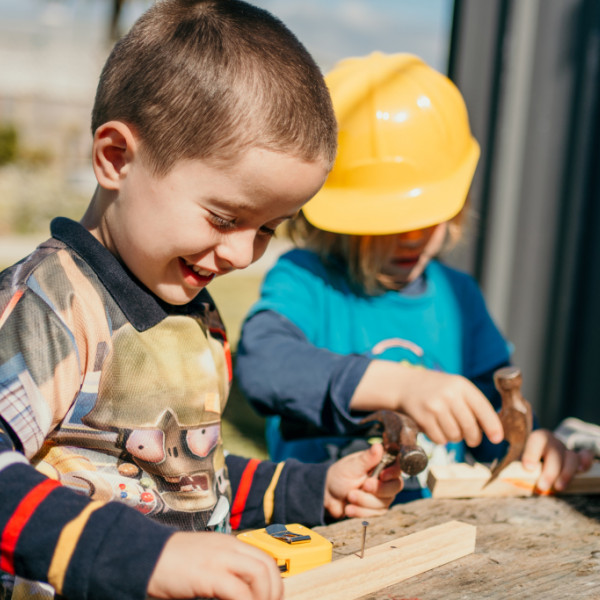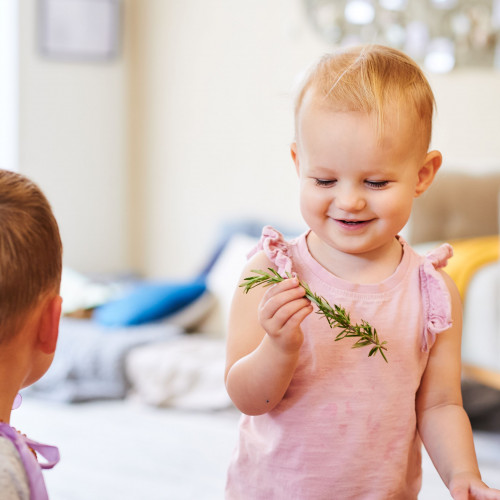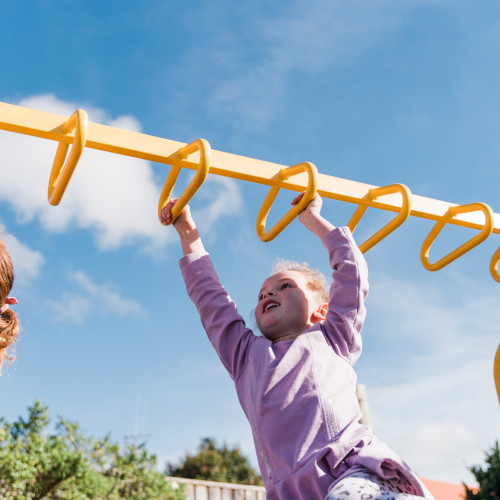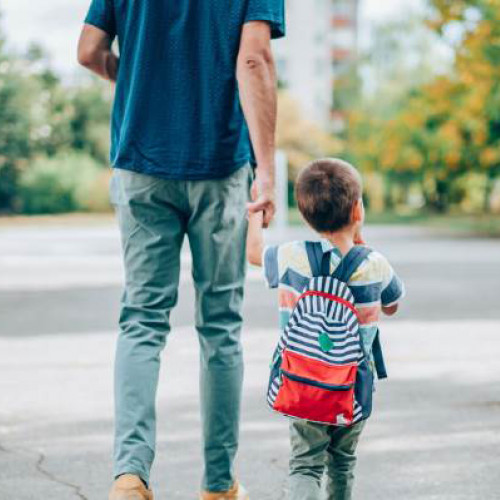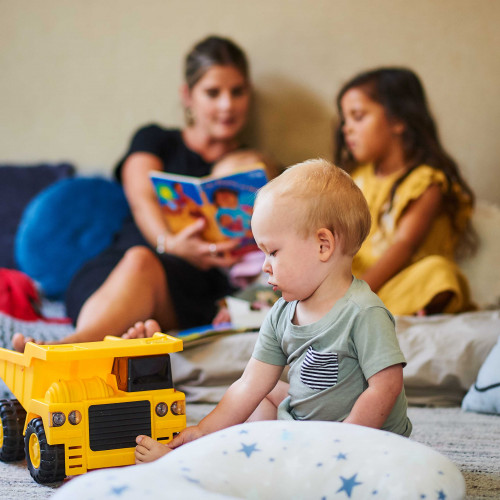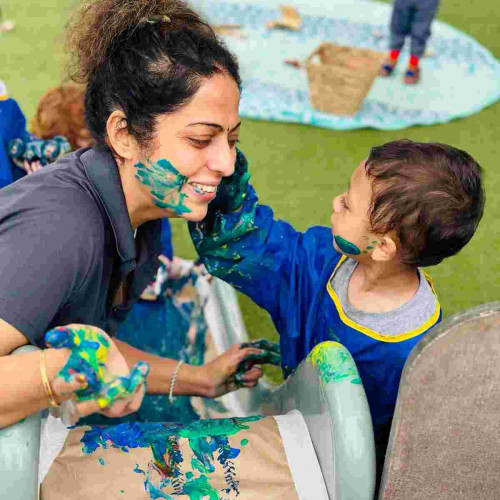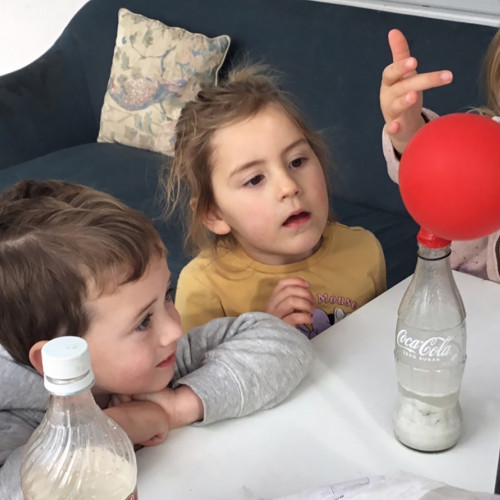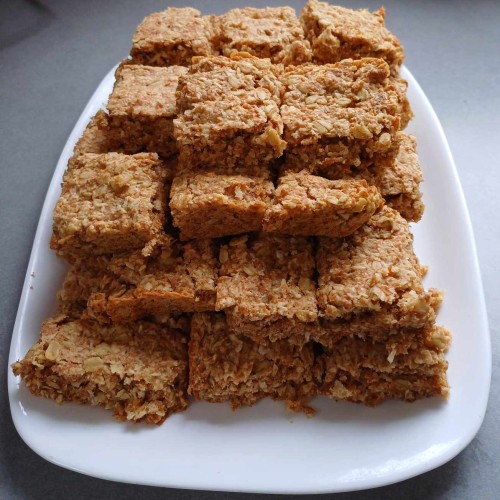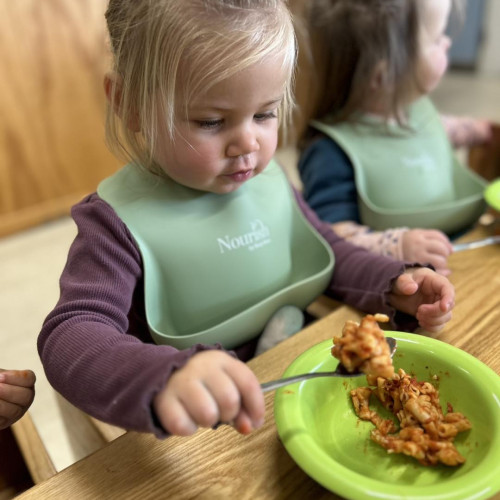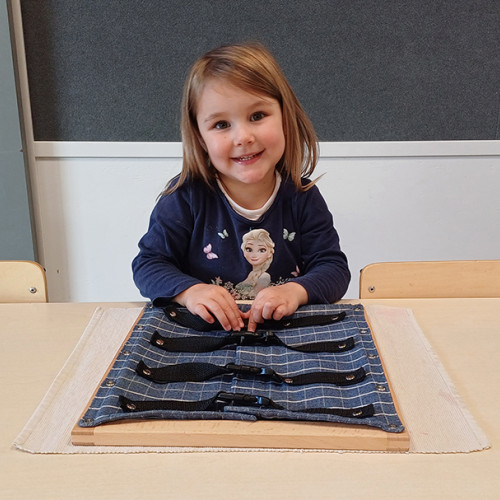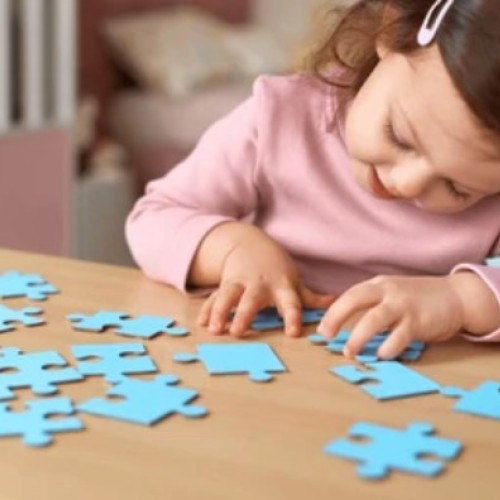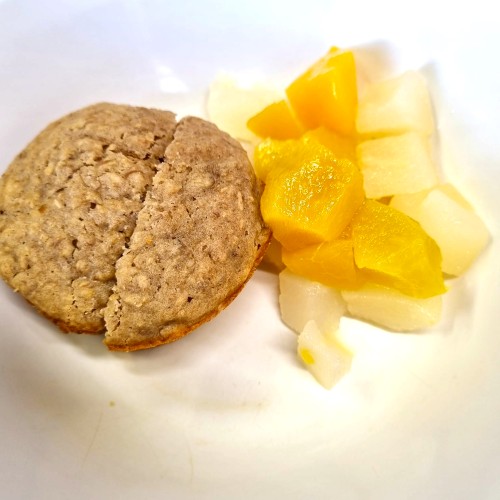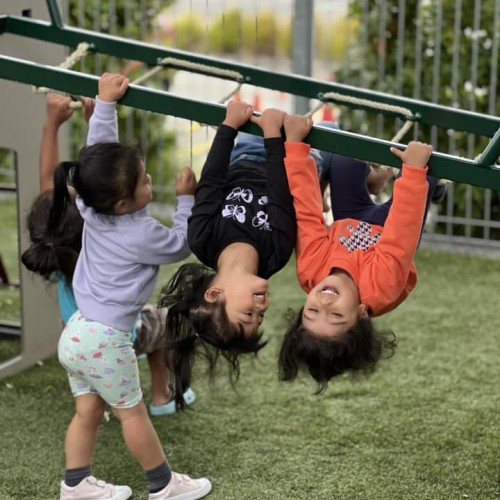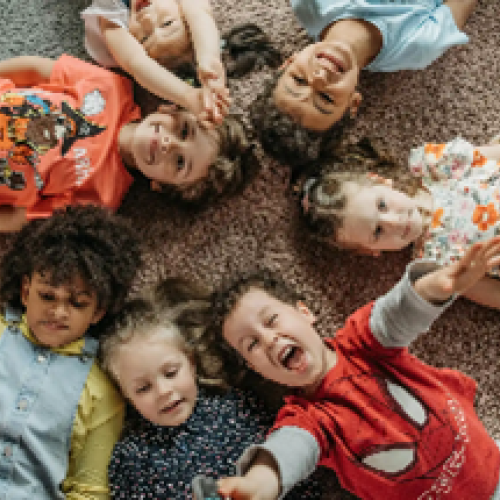
Hit enter to search or ESC to close
Risky Play in Early Childhood Education
Risky play means the type of play that children see as exciting - where they can push themselves, try new things, problem solve and test the limits of their physical, emotional, and intellectual development. Giving children access to play freely outside, with risks, is healthy for their development (both physically and emotionally).
Risky play does not mean that children are allowed to play in reckless or dangerous situations or that they are pushed beyond their own capabilities.
Risky outdoor play has been a natural and important part of growing up for generations. In more recently, changes in attitudes towards children's exposure to any risk, has had a negative impact on children being able to play freely outdoors.
What could risky play look like?
Ellen Beate Sandseter identified six categories of risky play, the behaviours that distinguish each type of play and the potential dangers that can occur if not managed carefully.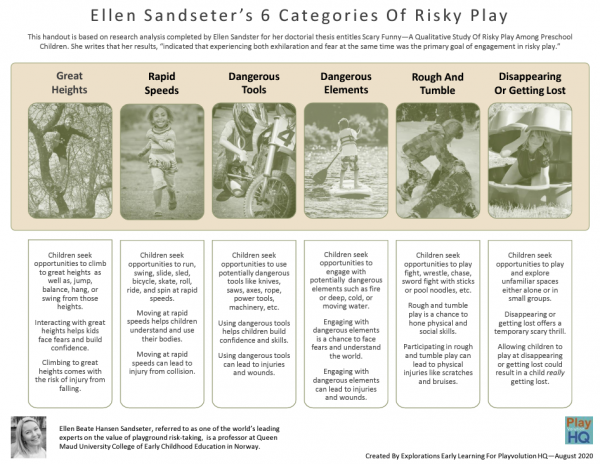
The benefits of risky play are clear and allow for wonderful lifelong learning for children. Teachers need to allow the opportunities for them to engage in this, whilst ensuring that there are clear systems and processes around that can mitigate any dangers, e.g. like the placement of equipment, ensuring that the children don’t crowd each other (e.g. by the swings, on top of the climbing boxes, at the carpentry table etc) and by knowing each child and their capabilities as one child’s risky play, may not look the same as another child’s.
Te Whāriki, the NZ early Childhood curriculum, states that we need to see children as competent and capable, with regards to pushing themselves and engaging in risky play. That means we need to allow them opportunities to do this, maintain health and safety in our playgrounds and trust in their own abilities and problem solving skills.





